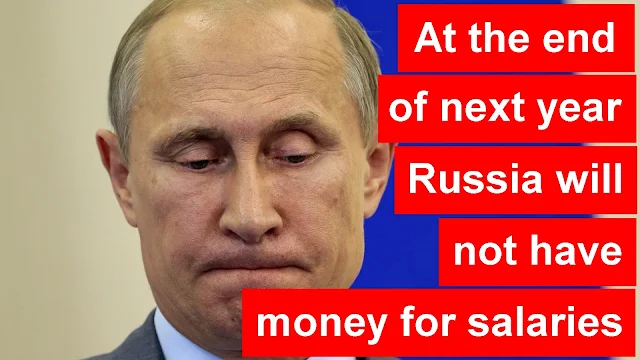Lack of reforms in the Russian economy could lead to depletion until the end of 2017 and the severe economic problems, said Deputy Finance Minister of Russia, Tatiana Nesterenko.
"If nothing changes by the end of next year we will not have any reservations or pay wages where we have serious economic problems. In the public sector it is our primary internal challenge "- said Nesterenko National Youth Educational Forum, according to TASS.
At the same time, she recalled that when the country ran budget dollars to Russian oil and gas, it difficult to resist temptation and not to start new projects, not to index pensions and salaries.
After nearly two years of recession, sovereign fund for such periods detrimental to the economy only fell to 32.2 billion dollars this month, according to the Russian Ministry of Finance. The Fund had 91.7 billion dollars in September 2014, just before oil prices to collapse. And the situation is expected to deteriorate, writes CNN Money, given that the fund could only reach 15 billion dollars by the end of 2016.
Why is Russian economy in recession?
Russian government's reserve fund was designed to cover the state budget deficit in periods of low income from oil and gas. Meanwhile, the budget for 2016 is based on the assumption that Russia will sell Barla Bulk-oil at $ 50 a barrel, CNN Money Show.
But the average price of oil in the first eight months of the year was less than 43 dollars per barrel, and oil now constitutes 37% of total government revenue, compared with about 50% just two years ago. The Government will publish a draft budget for next year after parliamentary elections taking place this week.
If the situation recession will continue once the resources of this fund will be exhausted, the Russian government has indicated it will appeal to another fund intended to finance future pensions and proictelor of long-term investments in the amount of 70 bln. Dollars, but not targeted to cover budget deficits.
Russia's central bank lowered benchmark interest rates Friday to 10% from 10.50%, in a new attempt to give a restart economy. The central bank still has 395 billion dollars in international reserves, declining, however, from 524 billion dollars in October 2013. More than 140 billion dollars were used between 2014 and 2015 to save the ruble from collapse , writes source.











